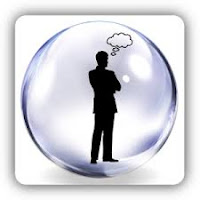When I first entered the workforce, no one would dare send a written communication (we called it a "memo") without prior review by the boss.
Business ran according to military rules (in fact, many of the bosses were former military officers).
Those days are long over.
"A new status symbol in today's generally more egalitarian business environment has arisen: sloppy e-mails," says consultant Keith Ferazzi.
Empathize with readers. Too many writers lack empathy for their readers. When writing an email, "use respect, positive affirmations, and gratitude to set the right tone and proper context." Your writing will display more empathy if you "visualize that individual in his office as you send him an e-mail."
Appreciate different styles. "We all tend to prefer a certain 'language' for communications at work," Ferazzi says. Some people prefer numbers; some, pictures; and others, stories. Appreciating others' styles improves your ability to communicate and reduces the likelihood of misinterpretation.
Spell things out. "We often communicate less information than we think we are, a syndrome psychologists call signal amplification bias," Ferazzi writes. Make descriptions and instructions clear and complete.
Respond promptly. Readers care not only about content, but about the promptness of your replies to their emails, Ferazzi says. "When your reply is tardy, the other party is left wondering whether you value that relationship or not."



















